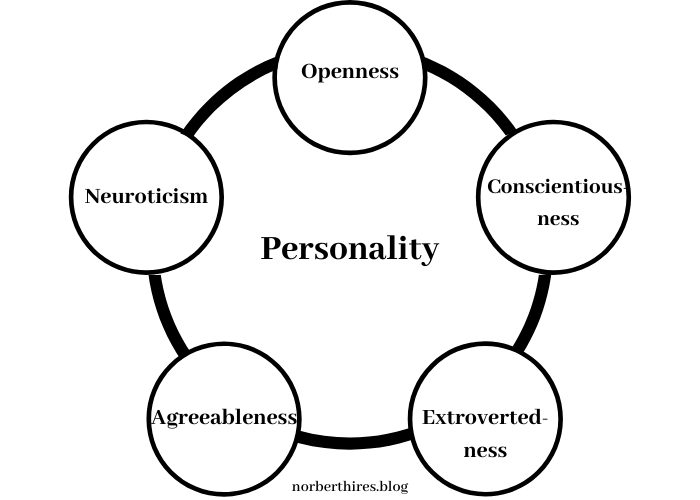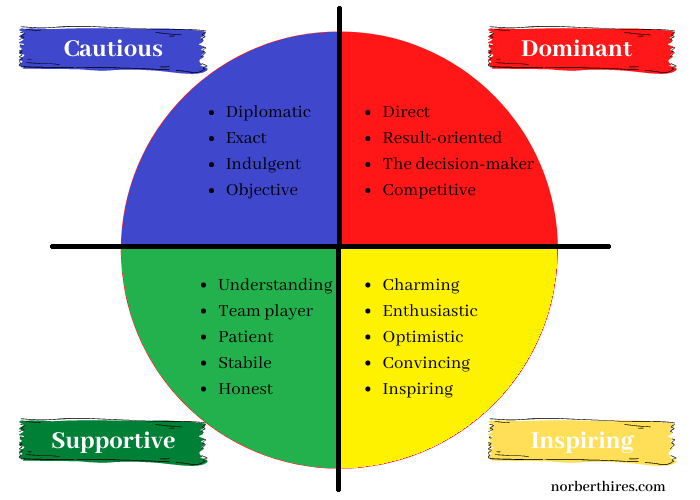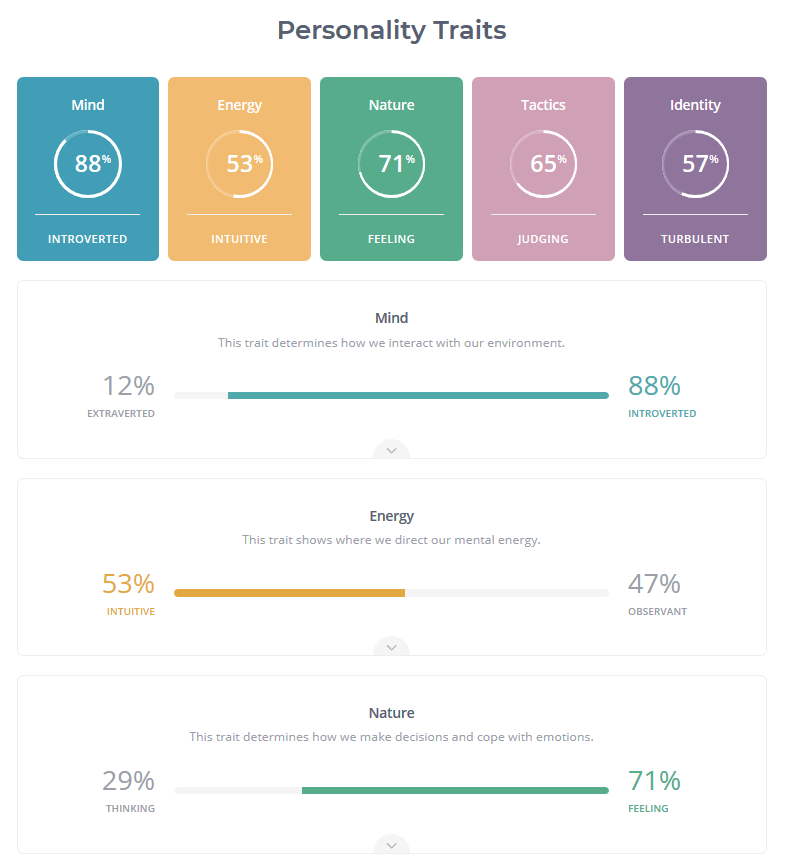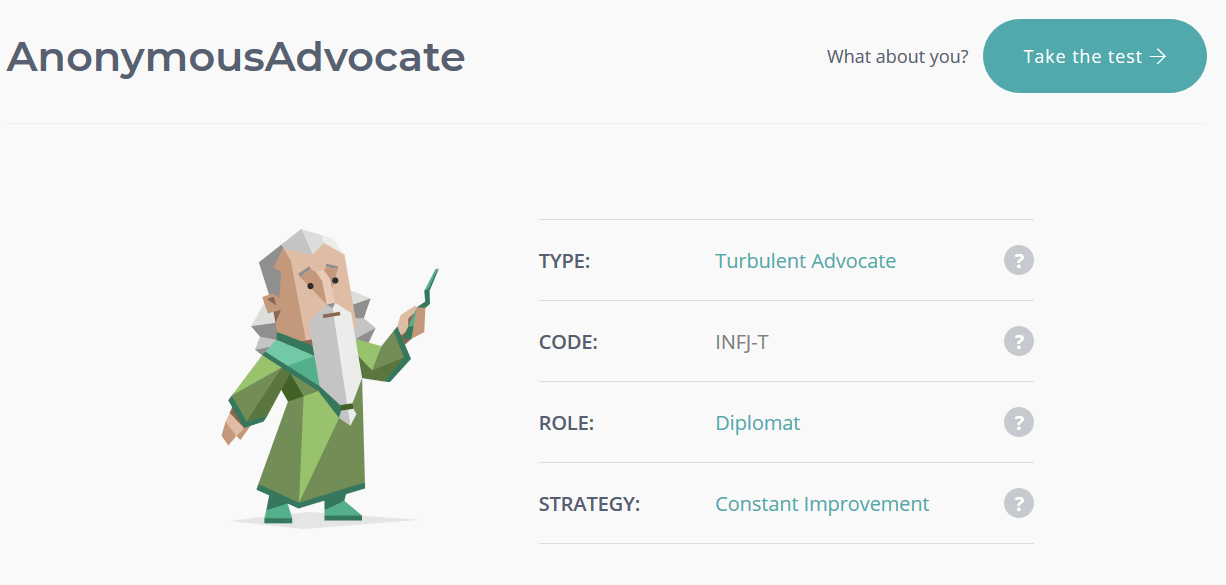Best personality tests: Big Five, DISC, MBTI

Inevitable parts of most interviews are personality tests. You may have already completed 480, 70, or 25 question questionnaires. Our answers reveal a lot about ourselves, but most of the time we don't know the results.
Based on our answers, we either fit the given position or not.
I first encountered a personality test during a career aptitude test. I filled it out, the experts evaluated it, they asked a few questions, and then let me go.
I failed.
Years later, I was able to complete a similar questionnaire during a workshop, but the goal was not to measure my capability for a job.
One expert evaluated my answers and I received my personality traits on paper. In a few sentences, I got a report about myself with impressive accuracy. Most of the statements were precise, but some were deeply outrageous.
I recently found the A4 sheet in a book years after the test.
All statements proved to be true, even my hard-to-admit negative traits.
Personality tests are not the privilege of HR departments.
With these questionnaires, anyone can use science-based tools to improve their self-awareness.
We can make better decisions about our careers, control our bad characteristics in daily lives, and develop our strengths based on the results.
Numerous types of personality tests are available free of charge on the Internet, and with technological advancement, we get our results immediately.
In this article, I’d like to briefly introduce the most common (and I think the best) personality tests and provide links so you can get your results without navigating shady websites.
Tips for completing a personality test
Regardless of the type of personality test, there are a few tips to keep in mind to have accurate answers:
- Write about what you’re right now, not about what you want to be!
- Do not sit down tired, hungry, or depressed to complete the test! Answer the questions in a calm, undisturbed environment!
- Take the time to ask questions, think through your answers. Do not hurry!
Big Five personality test
The Big Five is one of the most popular and widely accepted personality tests in psychology.
With the help of the “Big Five” you can learn how you react to different situations, and the experience can help you choose a profession that suits your personality.
To complete the personality test, you will need to rate 60 statements (varying from test to test) on a scale of 1 to 5.
- 1 means not true at all,
- 3 means neutral,
- 5 means absolute truth.
But before you start, let’s take a look at the possible outcomes.
OCEAN personality traits
The English acronym for the Big Five is OCEAN (openness, conscientiousness, extraversion, agreeableness, and neuroticism), which means the following personality traits of the Big Five model:
Openness: This shows how open you are to new ideas and experiences. The imagination of open people is more advanced and they are full of ideas. Those who achieve a high value in the personality trait have a wide range of interests, are curious, and love new experiences. They are adventurous, creative, and open people.
Those who score low in terms of openness are traditional individuals who may have problems with abstract thinking.
Conscientiousness: Shows how goal-oriented, persistent, and precise you are. Those with high values are conscious, keep their emotions in check, and always keep their goals in mind.
They plan, count on deadlines.
Extrovertedness: Extroverted people are characterized by eloquence, confidence, a preference for the company of others, and high levels of emotional expression.
Those who score high in terms of extrovertedness are filled have a lot of friends, they feel energetic and excited around others.
Those who score low (introverted) are restrained, sacrificing less energy for their social relationships.
Silence rather than company energizes them.
Agreeableness: Shows how well a person can put the interests of others before their own. This element of the Big Five personality model includes qualities such as confidentiality, kindness, altruism.
Those with high values are cooperative, while those with low scores are more competitive and manipulative.
Neuroticism: How sensitive are you to stress and negative emotions? High achievers are characterized by frequent mood swings, anxiety, and sadness.
Those with a low score, on the other hand, are emotionally stable.

Changes in personality traits
Several studies have examined the stability of Big Five personality traits. Personality traits are relatively stable in adults, but in the long run, some traits change for most people.
Over time, we tend to be less extroverted, less emotional, and distant from new experiences. Conscience and friendliness seem to increase over time.
The Big Five personality test is a simple model that can be completed in a short time. The personality test evaluates our qualities on a scale.
The lessons are easy to interpret, but they do not give us the complex model experienced in other tests.
Translating experiences into reality requires different things for each personality trait, whhich other tests may better document.
DISC personality test
Wonder Woman and the DISC model
Did you know what common point between Wonder Woman and DISC personality test?
Both are connected to the same American psychologist.
Dr. William Marston was the inventor of one of the prototypes of the lie detector and contributed to the creation of the DISC model, the lessons of which were used to create the DISC personality test.
During his research, Marston noticed the educational potential of comics. His wife, Elizabeth Holloway Marston, had the idea to create a female superhero character who would fight criminals on the side of the U.S. government.
It was from this idea that Wonder Woman was born.
Although Dr. Marston has written several psychological studies and articles, he has dedicated the last years of his life to comics. He also wrote the lyrics for the first Wonder Woman comics.
But let's get back to the DISC personality test…
Marston’s DISC model distinguishes two basic motivators, the motor, and the compass-like drive.
According to the motor drive, we distinguish between introverted people spinning at lower speeds and active, extroverted people.
The compass drive introduces two more dimensions to the model, according to which task-oriented and people-oriented individuals exist.
DISC personality types
Using the four dimensions of Dr. William Martson’s model, the DISC test was created, which sorts people into four categories based on behavioral patterns.
Knowing your DISC type will make it easier for you to find options that fit your personality and achieve results that are important to you.
During the DISC personality test, you need to choose the one that best describes you from four pairs of attributes.
The questionnaire usually has 25 questions, and it takes approximately 5-10 minutes. Based on your answers, the system or evaluator will assign you into one of the following four categories.
1. Dominant - Red
- Direct
- Result-oriented
- The decision-maker
- Competitive
- Problem solver
2. Inspiring- Yellow
- Charming
- Enthusiastic
- Optimistic
- Convincing
- Inspiring
3. Supportive - Green
- Understanding
- Team player
- Patient
- Stabile
- Honest
4. Cautious - Blue
- Good analytical ability
- Diplomatic sense
- Exact
- Indulgent
- Objective

The DISC test helps you make better decisions about your career, but also points out skills that need to be developed. Knowing the personality type of others can also take effective collaboration to the next level.
NERIS Type Explorer - MBTI test
One of the greatest achievements in the study of personality types was achieved by Carl Gustav Jung, whose theory of psychological types provided the basis for a myriad of other approaches, including the Myers – Briggs type theory.
However, personality is only one of the factors that determine our behavior. Our actions are equally influenced by our environment, our experiences, and our goals.
The NERIS Type Explorer, which uses the Myers – Briggs type theory takes the latter also into account.
One of the shortcomings of type-based personality tests is that they can not handle personality types on the edge of given categories. The NERIS Type Explorer, on the other hand, evaluates not only types but also traits.
Abbreviations are based on the Myers – Briggs type theory (for example INFJ) are used for the types of tests, and an extra letter is added to the range of types.

The experience of the Big Five personality test was also incorporated into the test. The test, which combines several methodologies, is thus able to give a well-defined description of our personality with high accuracy.
The free 16Personalities test is breathtakingly good.
Although it takes more time to complete, the description of the results and personality types is much more detailed than any of the other tests I have completed.
Due to the player names (Commands, Protagonist, Campaign Manager…), the unique graphics, the solutions played, it is not only useful but also enjoyable to complete the test and study the results.
For example, I'm a Turbulent Advocate .

What about you?
Comment about the best personality tests
Several free tests are available online, which can take up to hours to complete, and then the result is linked to a premium SMS. These drawings that tell half-truths are incredibly annoying (you can find a lot of similar ones, especially in IQ tests).
The tests linked in this article are really free and you will get detailed results after completing them.
I tried them all, so I recommend them.
About me
I am neither an expert, nor a psychologist, nor a recruitment specialist.
The above-mentioned tests can be evaluated better by experts than automatic systems, so it may be worth asking professional help.
Most tests are based on normal cases, so if you have any disease or manipulate your answers, the results can slip aside.
Take personality tests with this in mind.



